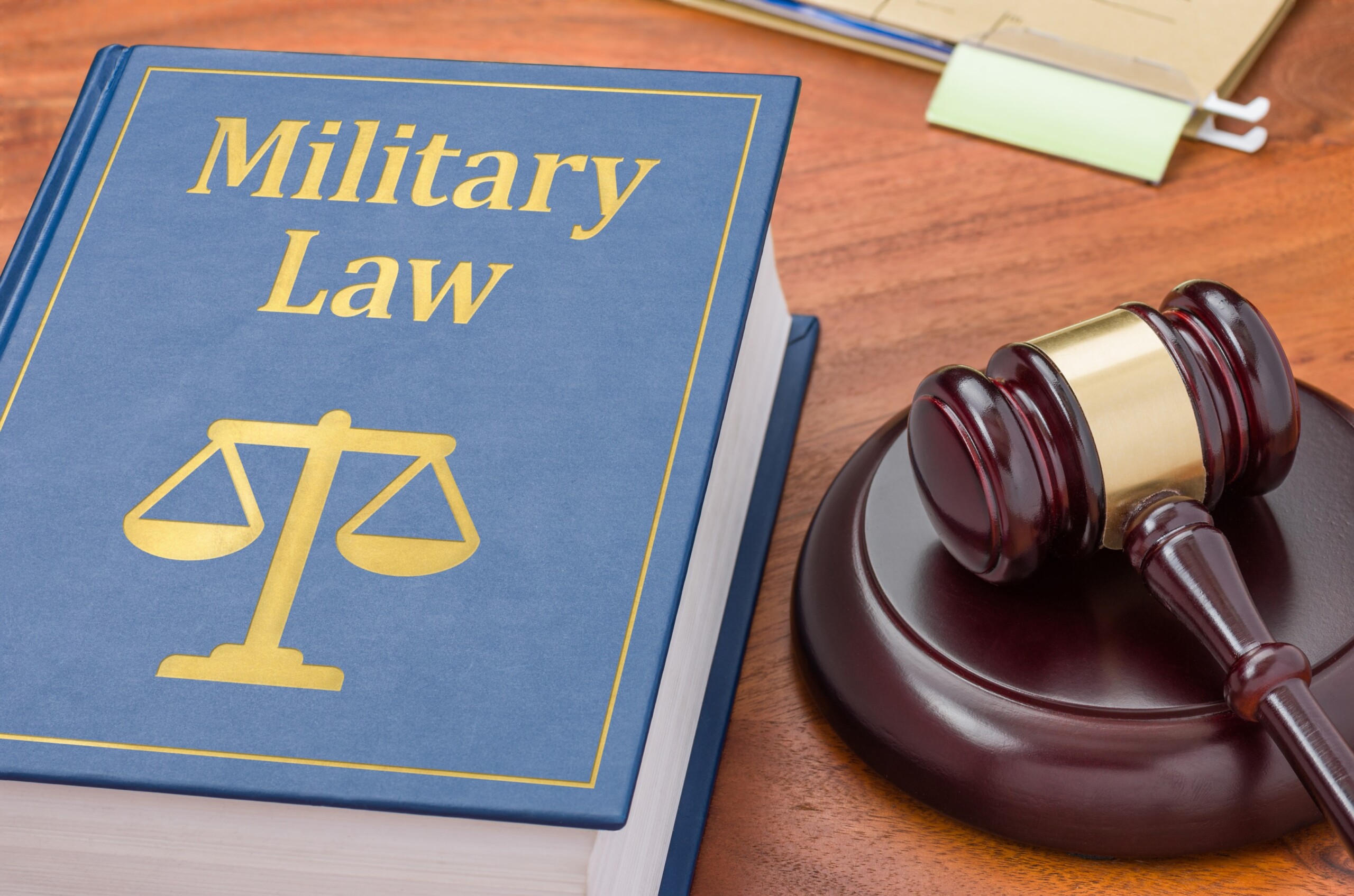The military justice system operates under the Uniform Code of Military Justice (UCMJ), a comprehensive legal framework governing all military personnel. This system includes three primary types of court-martial: summary, special, and general, each tailored to address varying levels of offenses with specific procedures and consequences.
Understanding these distinctions is critical for service members stationed especially at major Army bases like Fort Liberty in Fayetteville, NC, Fort Cavazos in Killeen, TX, and Fort Bliss in El Paso, TX—installations that witness the highest number of court-martial cases.
Chicago military defense lawyers play an essential role in navigating these complex proceedings. Whether it’s a summary court-martial for minor infractions or a general court-martial involving serious crimes, skilled legal representation is vital in protecting a service member’s rights and career.
This guide provides an in-depth exploration of the types of court-martial and the factors influencing their application.
Key Takeaways
- The military justice system consists of three types of courts-martial: summary, special, and general, each addressing different levels of offenses.
- Experienced military attorneys are crucial in navigating court-martial proceedings, significantly influencing outcomes and ensuring fair trials.
- Understanding the procedural elements and factors influencing court-martial types is essential for service members to prepare effective defenses.
Navigating the military justice system requires a deep understanding of the Uniform Code of Military Justice (UCMJ) and the unique culture of military proceedings. At The Law Office of Purav Bhatt, our experienced military defense attorneys, Purav Bhatt and Anthony Villalobos, provide dedicated legal representation to service members facing court-martial, nonjudicial punishment, or other military legal challenges. With extensive knowledge of military law and a proven track record, we are committed to protecting your rights and defending your career.
If you or a loved one is confronting military charges in Chicago, contact us today at 773-791-9682 for a confidential consultation. Let us stand by your side, build a strong defense, and guide you through this challenging time. Your career and reputation deserve the strongest possible military criminal defense—reach out now to take the first step.
Overview of Military Justice System
The military justice system, governed by the Uniform Code of Military Justice (UCMJ), outlines both the substantive and procedural laws for military legal matters. This system ensures that military members are held to a high standard of conduct, with the Manual for Courts-Martial (MCM) providing procedural rules and punishments for military crimes. Grasping this system is essential for military defense lawyers when strategizing for service members facing charges.
The UCMJ and MCM establish a structured legal framework similar to civilian trials but with unique military-specific elements. The military justice system features three types of court-martial: summary, special, and general, each addressing different levels of offenses. These courts-martial serve as the backbone of military legal proceedings, ensuring that justice is served while maintaining order and discipline within the ranks.
General courts-martial represents the highest military trial court, dealing with the most severe offenses and requiring an Article 32 investigation before proceedings. Special courts-martial, slightly less severe, involve a military judge and a panel of at least three members, allowing for prosecution and defense counsel.
Summary courts-martial, intended for minor offenses, are presided over by a single officer and involve only enlisted personnel. This tiered system ensures that each case is handled with the appropriate level of scrutiny and due process.
Types of Military Court-Martial
The military justice system categorizes court-martial into three distinct types: summary, special, and general. Each type serves a unique purpose and addresses varying levels of offenses, ensuring that military justice is both fair and effective. Recognizing these differences is vital for anyone involved in a military legal proceeding, including the accused and their defense counsel.
Summary court-martial is designed for minor offenses and involves a streamlined process. Special court-martial, on the other hand, addresses more serious but not the most severe offenses, involving a military judge and a panel of members.
Finally, general court-martial deals with the most serious crimes and includes an extensive investigation process before charges can be formally brought. Examining the specifics of each type helps in understanding their nuances.
Summary Court-Martial
Summary court-martial is intended for minor offenses and is designed to be a swift and efficient process. It involves only enlisted personnel and is presided over by a single officer, usually without legal training. This type of court-martial does not involve a jury, making the procedure less formal and more expedited compared to its counterparts.
The penalties in a summary court-martial are also less severe, with the maximum punishment being confinement for up to 30 days and reduction to the lowest enlisted rank. Even with the minor nature of offenses in summary courts-martial, experienced military lawyers remain crucial to ensuring a fair outcome and protecting the service member’s rights.
Special Court-Martial
Special court-martial handles more serious offenses than summary court-martial but less severe than those in general court-martial. It consists of either a military judge alone or a panel of at least three members, providing a more comprehensive review of the case. This type of court-martial allows for both prosecution and defense counsel, ensuring that the accused has a fair trial.
Offenses in a special court-martial can range from moderate misconduct to more significant infractions, including military offenses, drug offenses, and sexual assault. The penalties can be more severe than in summary court-martial, potentially including confinement, fines, and a bad-conduct discharge.
An experienced military defense lawyer is key to navigating the complexities of a special court-martial and securing the best possible outcome.
General Court-Martial
General court-martial is the highest level of military trial court and is reserved for the most severe offenses. These cases require an Article 32 investigation, similar to a grand jury process, before charges can be formally brought. The investigation ensures that there is sufficient evidence to proceed with the trial, providing an additional layer of scrutiny.
Convictions in a general court-martial can have severe consequences, including long-term confinement, dishonorable discharge, and a federal criminal record. Due to the seriousness of these cases, experienced military lawyers who grasp the intricacies of military law and the court-martial process are imperative. Their expertise can make a significant difference in the defense strategy and the overall outcome of the case.
Factors Influencing the Type of Court-Martial
Several factors influence the type of court-martial a military member might face. The severity of the alleged misconduct is a primary consideration. For instance, minor offenses are typically handled by summary court-martial, while more serious crimes require the scrutiny of a special or general court-martial. The rank of the accused also plays a crucial role, with higher-ranking officers often facing more formal proceedings.
Commanding officers have significant discretion in deciding whether to charge personnel and determining the appropriate punishment. Their recommendations can heavily influence the court-martial process, including whether to pursue administrative measures or formal charges. The outcome of preliminary inquiries and the accused’s consent can also impact the type of court-martial.
Military defense lawyers must understand these factors to develop effective defense strategies. Experienced military lawyers can navigate these complexities, advising their clients on the best course of action based on the specifics of their case. This expertise is invaluable in ensuring that the service member receives a fair trial and that their rights are protected throughout the process.
The Court-Martial Process in Chicago
The court-martial process in Chicago follows specific procedural steps to ensure fairness and justice. Pretrial confinement requires the command to establish probable cause before a service member can be confined or restricted. A review of this decision must occur within 48 hours, with a further review by a commanding officer required within 72 hours. This process ensures that the rights of the accused are upheld from the outset.
Service members awaiting trial do not lose their military pay or their positions in the military. They have the right to legal representation, and the military justice system allows for a review of the legality of pretrial confinement by the military judge once court-martial charges are referred. Familiarity with these procedural aspects aids individuals in making informed defense decisions, and an experienced military defense attorney offers crucial guidance throughout the process, especially when considering military retirement.
Importance of Experienced Military Defense Lawyers in Chicago
The importance of experienced military defense lawyers cannot be overstated, especially when facing the high stakes of a court-martial. These legal professionals have in-depth knowledge of military law and the specific rules governing military justice under the Uniform Code of Military Justice (UCMJ). Their experience enables them to effectively navigate the intricate legal framework and develop tailored defense strategies that address the unique aspects of each case.
A skilled military defense attorney plays a pivotal role in shaping the outcome of court-martial cases. They guide service members through the complexities of the military justice system, ensuring a comprehensive understanding of their rights and options. Their familiarity with prosecutorial tactics and evidence handling is instrumental in constructing a robust defense, safeguarding the accused’s rights, and pursuing the most favorable resolution.
In Chicago, service members facing court-martial are entitled to legal representation from military defense counsel. Additionally, they have the right to request a specific military lawyer, provided that lawyer is reasonably available. Selecting an experienced military defense lawyer who understands the nuances of UCMJ violations and military-specific challenges is vital for achieving the best possible outcome. These lawyers offer not only legal expertise but also the confidence and support needed during such a critical time.
Preparing for Your Court-Martial
Preparing for a court-martial involves several crucial steps. Service members have the right to consult with a military defense attorney before deciding on an Article 15 action, which allows them to make informed decisions about their defense. If offered an Article 15 action, they can accept or refuse it and request a court-martial instead. This decision should be made with the guidance of a military defense attorney who can evaluate the specifics of the case.
Documenting experiences in detail after an interrogation is vital, as it can aid the defense attorney in building a strong case. Service members must be aware that investigators may use deception as a tactic, potentially leading to self-incrimination. Understanding these tactics and preparing accordingly can significantly impact the outcome of a court-martial.
Having the best military defense lawyers who understand the intricacies of the military justice system is essential for preparing a robust defense. Their guidance can help service members navigate the legal landscape, protect their rights, and ensure a fair trial.
Secure Your Future with Experienced Military Defense Lawyers in Chicago – Contact Us Today!
Protecting your military career and reputation starts with the right legal representation. At The Law Office of Purav Bhatt, we recognize the challenges service members face when navigating the complexities of the military justice system. Court-martial proceedings can have far-reaching consequences, impacting your career, future opportunities, and personal life. That’s why having skilled and experienced legal advocates by your side is essential.
Our attorneys, Purav Bhatt and Anthony Villalobos, bring extensive knowledge of the Uniform Code of Military Justice (UCMJ) and years of experience in defending service members. Whether you’re stationed near major military installations like Fort Liberty in Fayetteville, NC, Fort Cavazos in Killeen, TX, Fort Bliss in El Paso, TX, or here in Chicago, we’re dedicated to providing personalized, results-driven defense strategies. From minor infractions handled by summary court-martial to severe cases requiring general court-martial proceedings, we understand the intricacies of each type and tailor our approach to your unique situation.
Our legal team is well-versed in every phase of the court-martial process, including pretrial investigations, evidence analysis, and negotiating favorable outcomes. We prioritize protecting your rights, ensuring procedural fairness, and preserving your career and reputation. With a proven track record of success, our firm is committed to delivering the highest level of legal advocacy for service members across the country.
Don’t face military charges alone. Contact us today for a confidential consultation and take the first step toward safeguarding your future. At The Law Office of Purav Bhatt, we fight for your rights, your career, and your peace of mind.






